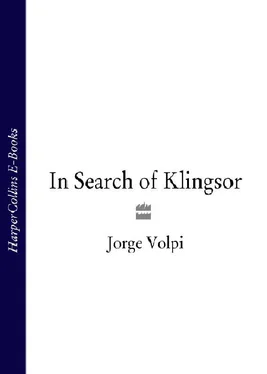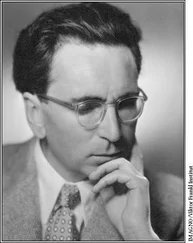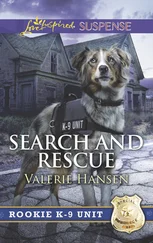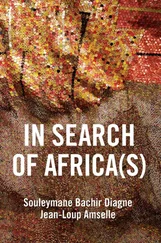“I follow you, Professor. War is like a game.”
“Have you read my little article on the topic, the one published in 1928?” Von Neumann inquired, narrowing his eyes.
“‘On the Theory of Games of Strategy,’” replied Bacon. “I’ve heard about it, but I haven’t read it yet.”
“Right,” the professor mused. “All right. Suppose, then, that the war between Churchill and Hitler is a game. I will add one other condition—something that in the real case isn’t necessarily true at all, but in any event—the players that intervene in the game do so rationally.”
“I think I understand,” ventured Bacon. “They will do whatever it takes to obtain the result they desire: victory.”
“Very good.” Von Neumann finally smiled. “I’m working on a theory right now together with my friend, the economist Oskar Morgenstein. The theory states that all rational games must possess a mathematic solution .”
“A strategy.”
“You’ve got it, Bacon. The best strategy for any game—or war—is the one that leads to the best possible result,” Von Neumann cleared his throat with a swig of whisky. “Now, to my understanding, all games fall into one of two categories: zero-sum games and everything else. A game can only be considered zero-sum if the competitors are fighting over a finite, fixed object and if one person necessarily loses what the other one wins. If I only have one pie, each slice that I obtain represents a loss for my rival.”
“And in the non-zero-sum games, the advantages earned by one player don’t necessarily represent a loss for the other,” Bacon pronounced, satisfied.
“Right. Therefore, our war between the Nazis and the British …”
“… is a zero-sum game.”
“Correct. Let’s use it as a working hypothesis. What is the current status of the war? Hitler controls half of Europe. England barely puts up a fight. The Russians are holding out, waiting to see what happens, chained to their nonaggression pact with the Germans. If this is what things look like, Bacon, you tell me: What will be Hitler’s next move?” Von Neumann asked excitedly, his chest heaving up and down like a water pump.
It was a tough question, and Bacon knew there was a catch to it. His response shouldn’t reflect his intuition, he reasoned, but rather the mathematic expectations of his interrogator.
“Hitler is going to want another piece of that pie.”
“That’s exactly what I was hoping to hear!” Von Neumann exclaimed. “We’ve said that to Roosevelt over and over again. Now: Which piece, specifically?”
There were two possibilities. Bacon didn’t even flinch.
“I think Hitler’s going to start with Russia.”
“Why?”
“Because it’s the weakest of all his potential enemies, and he can’t allow Stalin to continue building his war chest for much longer.”
“Perfect, Bacon. Now comes the hard part.” Von Neumann was enjoying the young man’s astonishment. “Let’s take a look at our position on this issue, that of the United States of America. Right now we’re not involved, so we can be more objective. Let’s try to decide, rationally, what our course of action should be.”
Bacon and Von Neumann sat talking for over half an hour. In the meantime, the maid busied herself placing the plates and tablecloths in their proper places in the dining room, next to the drawing room. After a while, Klara, the professor’s wife—his second wife, actually—called out to Von Neumann from the staircase, chastising him for being late for his own party. Von Neumann waved his hand dismissively and signaled to his companion to stay where he was. Although he felt a bit silly, Bacon was enjoying the conversation; its dry humor and fast-paced exchanges reminded him of those chess games with his father so many years before. Beneath the apparent simplicity of this intellectual challenge, Bacon had the feeling that he was actually waging a most unusual battle against the professor. This was the kind of conversation he could imagine taking place between two spies from enemy countries, or two lovers unsure of one another’s affections. Each move was an attempt to get ahead of the next one, and so on and so on, and both men had to perform two tasks at once: They each had to carefully guard their own strategies, and at the same time figure out the other’s plan of attack. The conversation itself was a kind of game.
“My theory is the following,” said Von Neumann, as he took a sheet of paper from the coffee table and began outlining a neat, precise diagram. “The game we are playing with the Germans is not zero-sum because it involves the division of an even larger pie—the world—and there is a wide range of values ascribed to the different pie pieces that each side wants to keep for itself. This means that there are two strategies at play here, and four possible outcomes. The United States can decide to enter the war or not. The Axis countries can decide to attack us or not. What, then, are the four scenarios?”
Bacon responded with confidence:
“First, we attack them; second, they attack us by surprise; third, both sides attack simultaneously; fourth, things stay the way they are.”
“Now let’s consider the outcomes of each case. If we declare war, we have the potential advantage of surprising them, but many American lives would no doubt be lost in the process. If, on the other hand, they attack us first, they will possess that surprise margin but then they will be forced to wage a war on two fronts (provided that we are correct in assuming that they will attack the Reds at any time). Now, if we follow the third scenario and attack simultaneously, and go through all the obligatory declarations of war, etc., etc., both sides will have forfeited the surprise element, and both will suffer similar human losses. Now, if we opt for the last scenario, in which both sides leave things as they are, the likely outcome is that Hitler will take control of Europe and we will take North America, but in the long run, a conflict between the two sides will still be inevitable.”
“I like your analysis, Professor.”
“Thank you, Bacon. Now I’d like you to assign values to each of the possible outcomes, for our side and for theirs.”
“All right,” said Bacon, and he began to write on the piece of paper:
1. The United States and the Axis attack simultaneously: USA, 1; Axis, 1.
2. The United States launches a surprise attack against the Axis: USA, 3; Axis, 0.
3. The United States waits, and the Axis launches a surprise attack: USA, 0; Axis, 3.
4. The situation remains the same as it has been until now: USA, 2; Axis, 2.
Then Bacon drew the following diagram:
“The question is,” said Von Neumann, more excited than ever, “what should we do?”
Bacon contemplated the diagram as if it were a Renaissance painting. He found its simplicity as beautiful as Von Neumann did. It was a work of art.
“The worst-case scenario would be for us to wait and then get attacked by surprise. We would get a zero, and Adolf would come out with three. The problem is that we don’t know what that monster has planned. From that angle, I think the only rational solution is to attack first. If we can surprise the Nazis, then we earn a lovely three. If we simply engage in a simultaneous war, at least we’d get a one and not the zero that we’d deserve for being overly indulgent,” Bacon concluded, convinced. “That’s the answer. This way, at least, the outcome will depend on us.”
Von Neumann seemed even more satisfied than his student. Not only had Bacon proven his grit, but he and Von Neumann agreed about what decision President Roosevelt should make regarding the war. Ever since the discovery of uranium fission in 1939, Von Neumann had been one of the staunchest advocates for the establishment of a large-scale nuclear research program in the United States. An atomic bomb, if such a thing were possible, would not only take the Germans and the Japanese by surprise, but it could also end the war once and for all. Unfortunately, however, his message of warning had not seemed to have much effect on President Roosevelt.
Читать дальше












